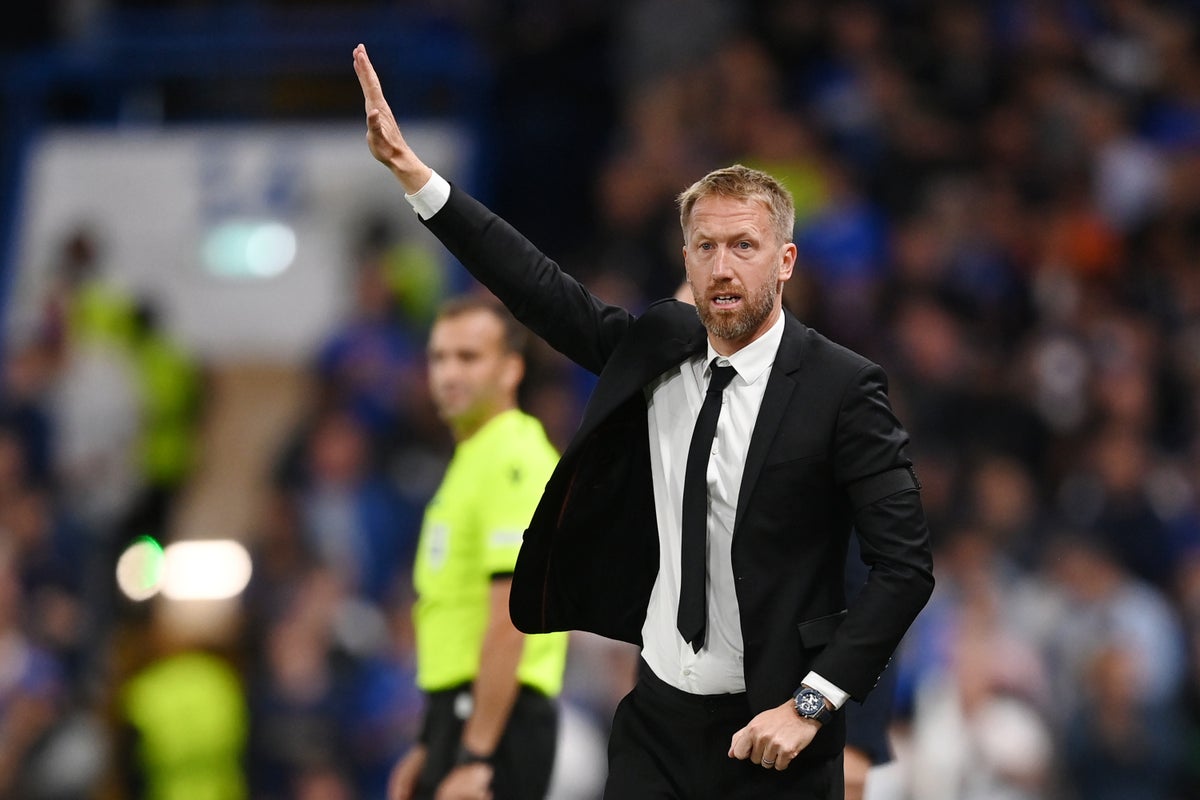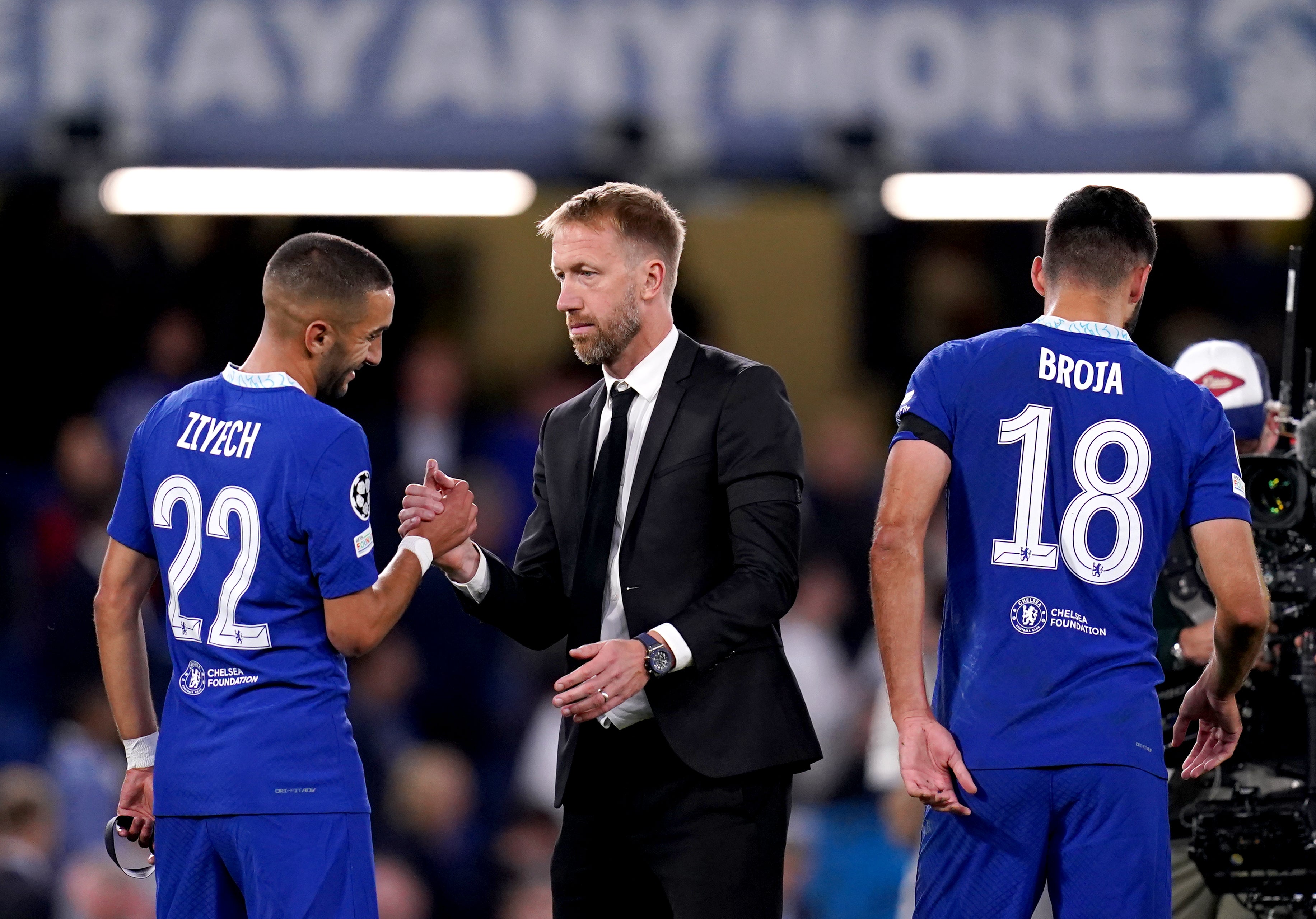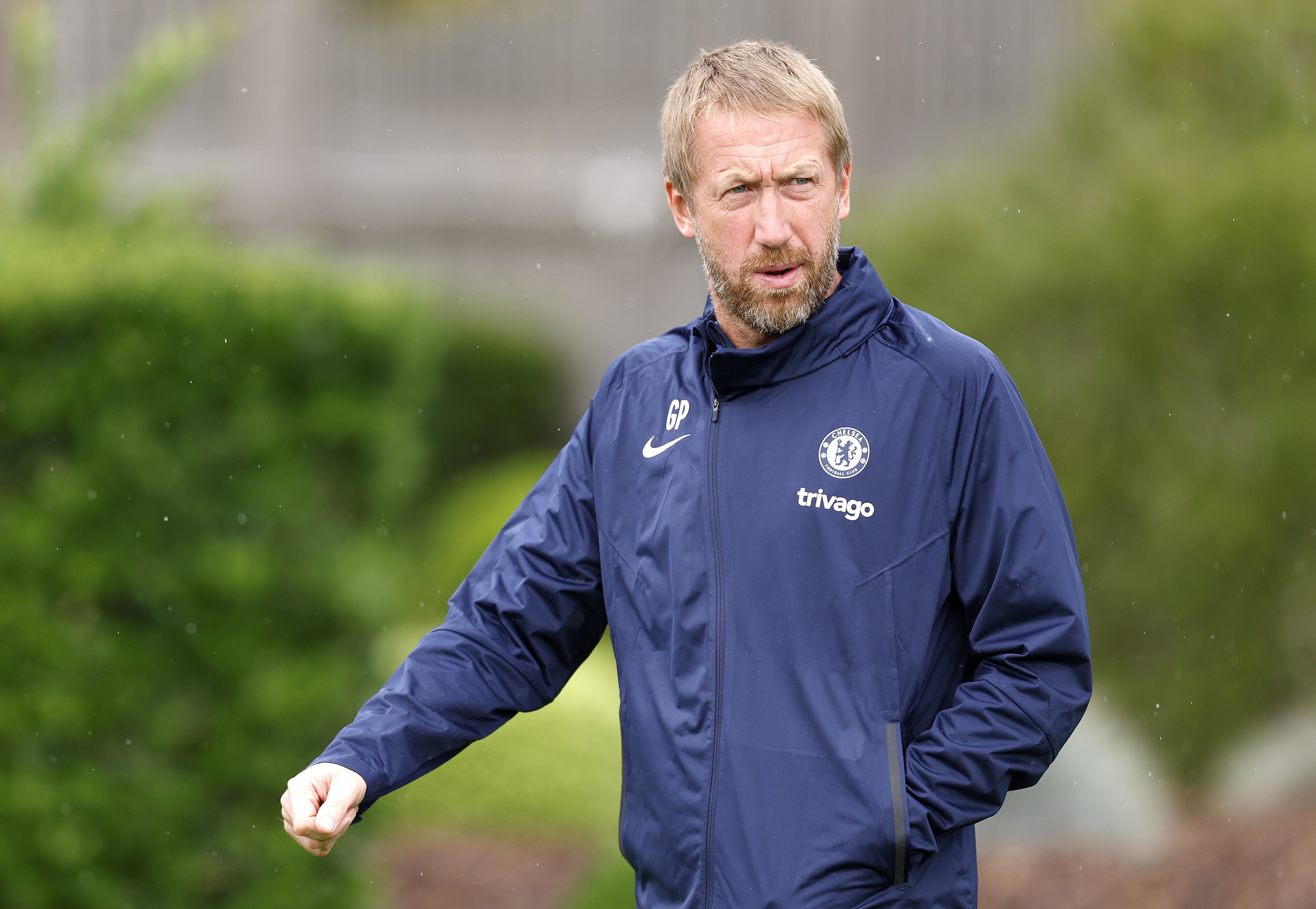
A new era brought a new tone. Chelsea’s statement announcing the appointment of Thomas Tuchel was factual and to the point, highlighting his honours with Borussia Dortmund and Paris Saint-Germain.
A Champions League and a change of ownership later, the confirmation Graham Potter was replacing Tuchel came amid a blur of corporate jargon plucked from American boardrooms. “The 47-year-old is educated to degree level in disciplines beyond sport and has combined these experiences to forge a collaborative, forward-thinking approach while developing attacking and winning football,” someone at Chelsea had to write. “I am very excited to partner with Chelsea’s new ownership group,” said Potter. He probably wasn’t quoting Ron “Chopper” Harris.
If Potter speaks the language of his employers, his communication – less blunt, more ameliorative, with fewer outspoken criticisms – may alienate fewer players than Tuchel’s increasing negativity. And yet on the pitch, it is tempting to wonder if the new boss has certain similarities with the old.
Potter’s Brighton, like Tuchel’s Chelsea, often played 3-4-3. They were a team who pressed high up the pitch, exerted control, had large levels of possession but collectively did not score enough and lacked one prolific player. It all comes within the context of Brighton’s lesser resources and inferior players, though each took his respective club to historic highs. It could suggest Potter is a natural successor, or that problems in the second half of Tuchel’s reign will persist.
The broader picture is more complex. At Ostersunds and Swansea alike, Potter tended to use a back four, just as Tuchel did with Dortmund and PSG. Each has shown a willingness to switch between systems but Tuchel was unable to turn Chelsea into a more coherent attacking team or one that could excel in another shape. That will be part of Potter’s challenge.
There are areas where he is the continuity candidate, but individuals offer intrigue. Just as Tuchel’s Chelsea did at their best, Potter’s Brighton have tended to attack with five players, with the wing-backs going ahead of the midfield. That has been particularly remarkable this season when those wing-backs have included the natural winger Leonardo Trossard and they have been inverted: the right-footed Belgian on the left, the left-footed Solly March on the right. That may not mean that Reece James will be asked to swap flanks with Ben Chilwell or Marc Cucurella, but whereas Tuchel rarely succeeded when asking Christian Pulisic or Hakim Ziyech to operate as a wing-back, can Potter cram another creator into the side that way?
He started his reign against Salzburg with Raheem Sterling as a particularly high left wing-back. It was one of a series of instructive choices: Mason Mount as more of a midfielder than a forward and £100m of new centre-backs, in Kalidou Koulibaly and Wesley Fofana, benched so the old firm of Cesar Azpilicueta and Thiago Silva could start in the back three.

There is the scope for further leftfield gambits. Certainly, he brings the possibility he will rebrand players. Potter can be a master of reinvention. He has turned himself from a football development manager at Hull University into Chelsea manager and Dan Burn into the tallest left-back in the world. If his predecessor has used players in improbable roles, Potter is Tuchel in overdrive. Pascal Gross – a No. 10 deployed at the base of the midfield and at wing-back – is a case in point.
In Tuchel’s Chelsea, there felt a strict division between the twin No 6s and the two No 10s. No one flourished in both positions; most weren’t even tried. In contrast, Potter, for whom 4-diamond-2 has seemed a plan B, has appeared able to rotate more fluently within that central box he likes: Gross and Adam Lallana are examples along with Alexis Mac Allister, a 10 redeployed brilliantly as a holding player this season. It may be a pointer to the future of Mount, who excelled in the front three for Tuchel. As Mac Allister’s return of four goals this season shows, Potter’s central midfielders have been able to get forward more than Tuchel’s, whose strikes have tended to be Jorginho’s penalties and who are invariably behind the ball. That has the potential to benefit Conor Gallagher while Ruben Loftus-Cheek has the range of attributes to perform in each half of the midfield, but never consistently has.
Potter has never had a deep-lying playmaker of the class of Jorginho – the chances are that he will appreciate the Italian’s class in possession, even if hints of his decline suggest a decision is beckoning – but in first Yves Bissouma and then Moises Caicedo, Brighton have benefited from their answers to N’Golo Kante. If Silva and Azpilicueta’s ages means Potter faces other questions of when to turn to the future, a defence with Albion ally Cucurella may bring fewer concerns; nevertheless, after he ditched Mat Ryan for a Spanish, footballing goalkeeper, in Robert Sanchez, Edouard Mendy may be worried that history will repeat itself and Kepa Arrizabalaga will be reinstalled.

But the attack represented Tuchel’s greatest failing. If Kai Havertz, the generational talent who has lacked consistency and an end product, and Sterling, the winger converted into a goalscorer by Pep Guardiola, represent contrasting cases of whether he can manage high-class forwards, the issue of the specialist striker looms largest.
Neal Maupay’s profligacy was a theme of Brighton’s strange existence as perennial expected goals underachievers. Potter eventually abandoned the Frenchman, preferring Danny Welbeck as the selfless, non-scoring foil to his phalanx of midfielders. In Pierre-Emerick Aubameyang, he inherits a player with 301 career goals and whose 40-goal campaign came under Tuchel. Oli McBurnie, much more of a target man, got a personal-best 24 goals in a season under Potter so he can build around a centre-forward, even if the sense is he prefers a team of midfielders, complemented by three strapping, ball-playing centre-backs and where everyone from Burn and Joel Veltman to Trossard and Gross could be a wing-back. It contributed to an image of Brighton as nice but ineffective, a side with the ability to beat the best but lacking the clinical instinct to defeat enough of the rest.
None of which has been the Chelsea way in the last two decades when pragmatism has reigned and trophies have followed. But Potter’s journey has marked him out as an unconventional figure. He is the leftfield thinker who can speak like the company man for the billionaire investors. If Potter’s entire career is an extended surprise, there will be some unexpected choices as he experiments with the squad Tuchel has left him.







